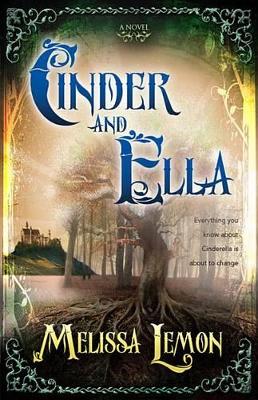Reviewed by Briana @ Pages Unbound on
Generally, Lemon’s asking of the audience to simply accept her world as it stands works well enough. It becomes problematic mainly when the reader realizes that two of the major plot points are a little unclear. First, here is a legend of the trees that figures prominently in the story, which basically suggests that each person has a tree to which he or she is tied so that the health of one effects the others. Okay. Yet there are obviously some nuances to this whole process that Lemon never shared. Secondly, it is clear the prince is evil, practically from the first page. Why? Exactly how? This is a complete mystery for the majority of the story and once it finally is explained…it really is not.
Even more ambiguity arises when one strives to classify this book. Is it middle grade? The simplicity of the story and the storytelling could make it appropriate. Yet there are some minor themes that might inspire readers to push it into young adult, including the frequent drunkenness of a decently prominent character and the subsequent unwanted sexual attention he tries to bestow. In fact, he is stated as having a history of “ruining women.” None of this is graphic and none of it plays a particularly significant role in the tale. So the question becomes: what is it doing there at all? Perhaps I am, as accused, a slightly prudish reader, but I think I would be taken aback if a ten-year-old were to ask me what it meant to “ruin women.”
The next genre dilemma is whether this is a Christian book. It is not overtly Christian, and any readers who are not particularly fond of Christian works have no reason to run away. The focus is on the fairytale and love—whether that is romantic or familial. So really it is quite surprising when the king gives a very God-like speech on the subject of free will and evil in the world. And after that it becomes simply impossible to stop from thinking of the prince as the “Prince of Darkness.” So clearly there is no Trinity going on here, and it seems a little strange to think of the devil as God’s son, but….it is there. Maybe Lemon simply has a religious philosophy that made its way into the book when she needed to address important life themes.
Lemon ultimately managed to tell an interesting story, although the extent to which it can properly be called a retelling of “Cinderella” is also debatable. There are mean stepsisters and a lot of chores, but the obvious parallels end there. There is generally more action than romance and, as stated, the actual prince is evil. In the end, the major issue with the book is that the story never quite decided what it wanted to be. Lemon has a great imagination, but there were a few technical issues transferring it to paper.
This review was also posted at Pages Unbound Book Reviews.
Reading updates
- Started reading
- 17 February, 2012: Finished reading
- 17 February, 2012: Reviewed
